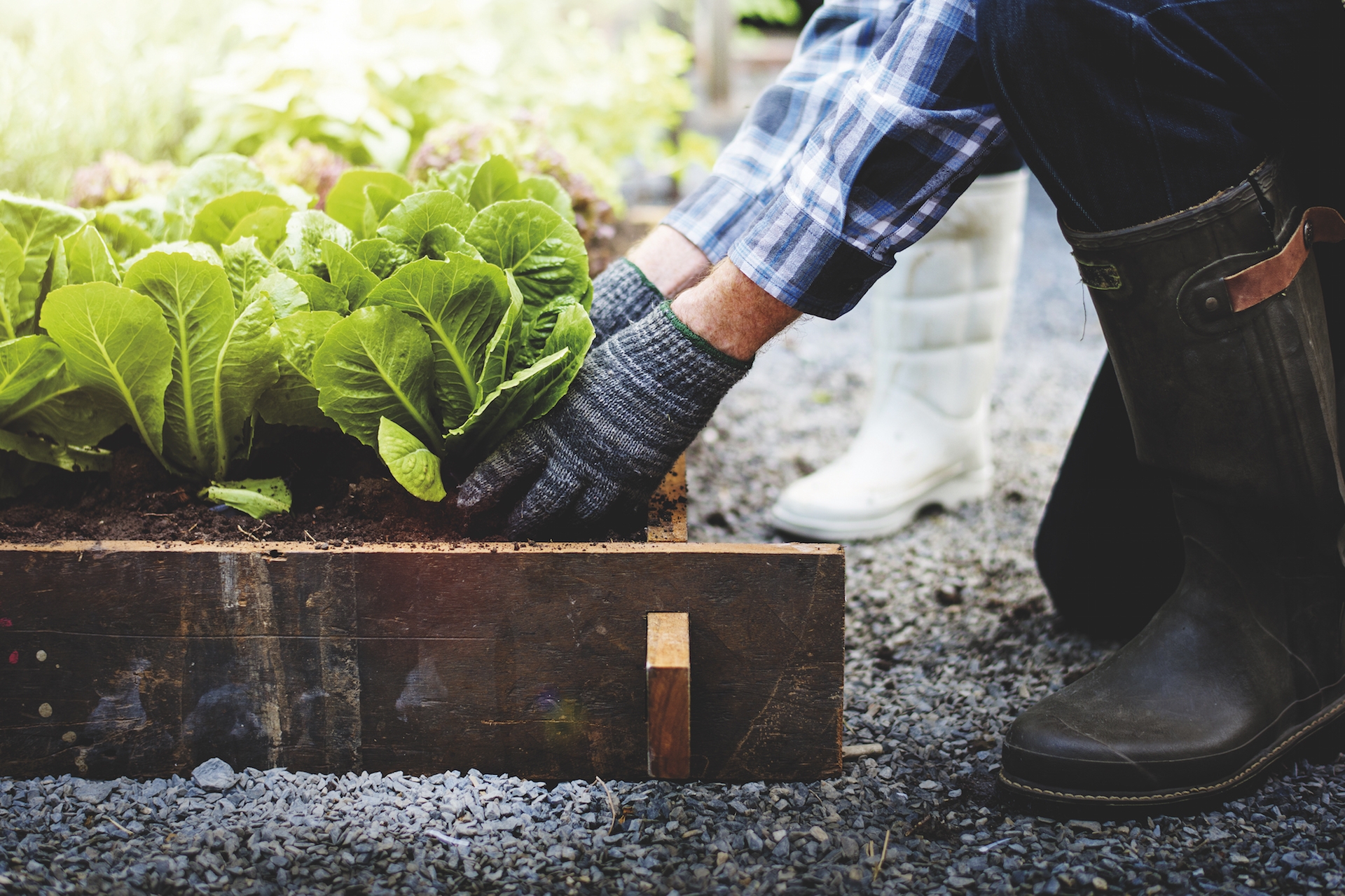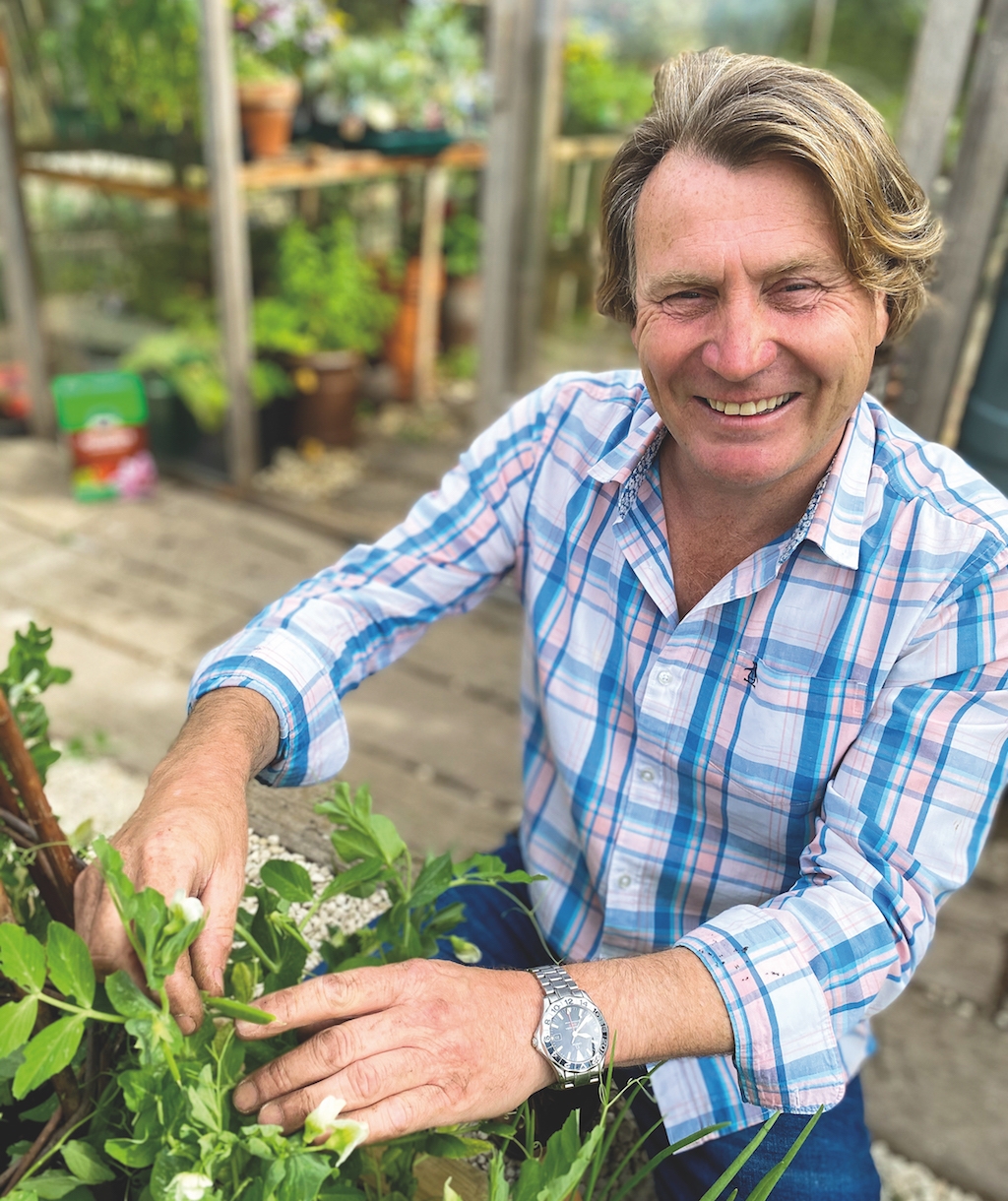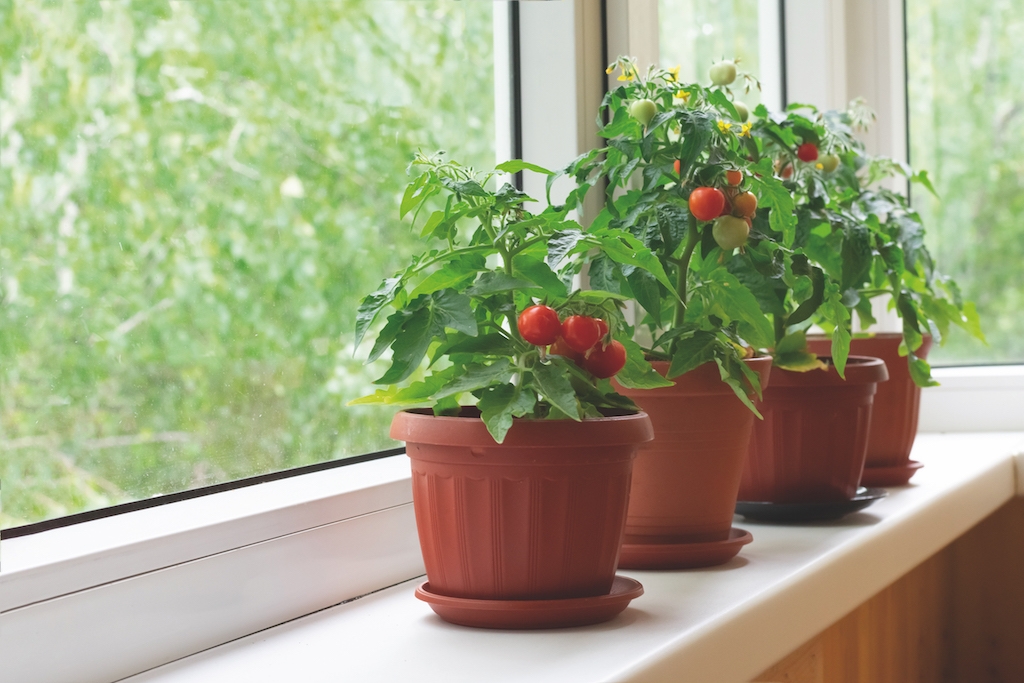
- HOME
- CULTURE
How To Grow Organic Veg at Home
Gardener David Domoney’s five top tips on how to grow organic veg at home
By | 4 years ago
The process of growing your own fruit and vegetables is an extremely satisfying task, and the magic of harvesting produce that you have grown by hand never fades. Gardening is also beneficial mentally and physically, because exercise releases endorphins and designing your garden is a creative way to express yourself. No matter how big or small, every garden, patio or windowsill is suitable to growing. Here are five things to know before you start.
Five Tips for Growing Organic Veg at Home

David Domoney
1. Any space is good space
In smaller spaces, raised beds are popular for planting fruit and vegetables as they are great for drainage due to them being above ground level and are the perfect way to incorporate organic soil into your fruit and veg patch. Window boxes and planters can also work really well.
2. Create Your Own Compost From Kitchen Waste
Creating your own organic matter by composting is a fantastic way of reducing your household waste, improving the biodiversity in your green spaces and producing quality compost that’s ready to use in your garden or window box to help your new fruit and veg flourish. All you need to do is buy or build a compost bin where you can dispose of your leftover food, and it will be broken down by bacteria, fungi, worms and insects.

3. Get Rid of Pests the Natural Way
Going organic requires a new approach to pest control. You’ll need to use a good natural pesticide to help with things like slug control. Other deterrents you could use are physical barriers like mesh netting to keep certain insects away from vegetables, while companion planting also helps to control pests and can aid pollination of your crops and flowers. Try growing nasturtiums or marigolds to deter aphids from attacking your beans, and planting alliums around carrots to ward off carrot root fly.
4. Feed Well
Tomatoes and courgettes will thrive on weekly feeds with a specialist organic plant food – I recommend Miracle-Gro’s Performance Organics range. Low feeders such as carrots and onions will happily grow with one feed every two to three weeks.
5. Water Wisely
Timely watering is critical to help your garden thrive, and you will need to pay close attention. Dry soils can become a breeding ground for certain weeds and plant diseases, while damp, humid conditions make plants susceptible to others.
SEE MORE



